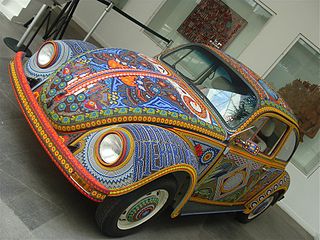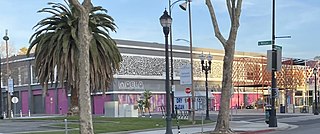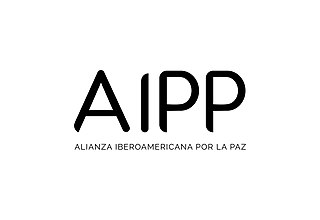
With a population of about 129 million in 2022, Mexico is the 10th most populated country in the world. It is the largest Spanish-speaking country in the world and the third-most populous country in the Americas after the United States and Brazil, the most populous city in the country is the capital, Mexico City, with a population of 9.2 million and its metropolitan area is also the most populated with 21.8 million as of 2020. Approximately 53% of the population lives in one of the 48 large metropolitan areas in the country. In total, about 76% of the population of the country lives in urban areas and 23% lives in rural ones.

A European Capital of Culture is a city designated by the European Union (EU) for a period of one calendar year during which it organises a series of cultural events with a strong pan-European dimension. Being a European Capital of Culture can be an opportunity for a city to generate considerable cultural, social, and economic benefits, and it can help foster urban regeneration, change the city's image, and raise its visibility and profile on an international scale. Multiple cities can be a European Capital of Culture simultaneously.

The World Book Capital (WBC) is an initiative of UNESCO which recognises cities for promoting books and fostering reading for a year starting on April 23, World Book and Copyright Day. Cities designated as UNESCO World Book Capital carry out activities with the aim of encouraging a culture of reading in all ages and sharing UNESCO's values. The nomination does not provide a financial prize.
The Arab Capital of Culture is an initiative taken by the Arab League under the UNESCO Cultural Capitals Program to promote and celebrate Arab culture and encourage cooperation in the Arab region.

The Carlucci American International School of Lisbon (CAISL) is a not-for-profit private international school in Linhó, Sintra, Portugal. Founded in 1956, CAISL is the oldest American school in the Iberian Peninsula and the only U.S. State Department sponsored school in Portugal. It is named in honor of Frank Carlucci, former United States Ambassador to Portugal.
The UNESCO/Bilbao Prize for the Promotion of a Culture of Human Rights, created in 1978 as the UNESCO Prize for Human Rights Education to mark the 30th anniversary of the adoption of the Universal Declaration of Human Rights, serves to honour the efforts of organizations or individuals that have made an exemplary contribution to the advancement of knowledge on human rights and building a universal culture of human rights. It was renamed on 5 May 2008 under the terms of a memorandum of understanding with Mayor of Bilbao Iñaki Azkuna whereby the municipality of Bilbao agreed to fund the prize for a period of three years.

Fran Ilich Morales Muñoz is a Mexican writer and media artist who principally works on the theory and practice of narrative media. Since 2010 Ilich lives in New York City.
The Ibero-American Summit, formally the Ibero-American Conference of Heads of State and Governments, is a yearly meeting of the heads of government and state of the Spanish- and Portuguese-speaking nations of Europe and the Americas, as members of the Organization of Ibero-American States. The permanent secretariat in preparation of the summits is the Ibero-American General Secretariat (SEGIB).

The Anahuac University Network is a private universities system grouped and administered by the religious congregation of the Legion of Christ. The network is composed of several universities, some with different names and educational approaches. The universities are located in different countries of the world, with presences in Mexico, United States, Chile, Spain, Italy and France.
Teoría de Precios: Porqué está mal la Economía is an economic essay written in textbook format by Mexican author Jorge Del Villar.

The Vochol is a Volkswagen (VW) Beetle that has been decorated with traditional Huichol (Wirrárika) beadwork from the center-west of Mexico. The name created by José Jaime Volochinsky is a combination of "vocho", a popular term for VW Beetles in Mexico, and "Huichol", the common name of the Wirrárika indigenous group. The project was sponsored by agencies associated with the Museo de Arte Popular, Mexico City, the states of Jalisco and Nayarit and other public and private organizations. The Volkswagen was covered in 2,277,000 beads applied by eight artisans from two Huichol families in an exclusive design based on Huichol culture.
The Unión de Mujeres Americanas was founded in 1934 by Mexican women's rights activist and suffragette, Margarita Robles de Mendoza. The purpose of the organization was to develop ties between women in the region to fight for the civic and political rights of women throughout the Americas and improve women's social and economic situations. She served as first chair along with an international board which initially had representatives from Cuba, the Dominican Republic, Peru and Venezuela. The headquarters of the organization is in New York City, but there are branches of affiliates in almost every country of the Western Hemisphere.
Koreans in Venezuela form one of the smallest Korean communities in Latin America, according to the statistics of South Korea's Ministry of Foreign Affairs and Trade.

Alejandro Pablo Avelluto is a journalist and book editor who held the office of Minister for Culture of Argentina since 10 December 2015 to September 2018, appointed by Mauricio Macri. Between 2014 and 2015 he served as General Coordinator of the Public Media System of the Autonomous City of Buenos Aires.

Fitra Ismu Kusumo is a promoter of Indonesian art and Culture in Mexico, since 2002 and founder of Indra Swara, introducing Indonesia through Gamelan, Indonesian traditional dances and also through its puppeteering art. As a researcher his area of specialty is Muslims and Islam in Mexico and Latin America.

Cultura Colectiva is a Mexico-based digital media publisher. It publishes content designed to be shared over social media networks targeted at a Latin American audience. It currently ranks third among the most read digital native media publishers in Mexico and one of the 10 most important in Latin America. The CEO of Cultura Colectiva is Luis Andrés Enríquez.

Indra Swara is a group promoting Indonesian art and culture in Mexico. It was created in December 2002 and it is mostly made up of young Mexicans, enthusiasts of Asian arts and particularly those of Indonesia. Some of its members have had the opportunity to study directly in the islands of Java and Bali through the Darmasiswa Scholarship program offered by the Indonesian government.

Movimiento de Arte y Cultura Latino Americana (MACLA) is a contemporary arts space focused on the Chicano and Latino experience and history, located in the SoFA district at 510 South First Street in San Jose, California. The museum was founded in 1989, in order to encourage civic dialog and social equity. The current programming includes visual art, performing and literary arts, youth arts education, and a community art program. The space has two performing arts spaces, a gallery and the MACLA Castellano Playhouse and they frequently host poetry readings and film screenings.

The Ibero-American Alliance for Peace (Spanish: Alianza Iberoamericana por la Paz) is an international non-governmental organization working to promote peacebuilding, human rights and disarmament in the Ibero-American region. Co-founded in 2016 by Angelo Cardona and Maria Teresa Barrios in Berlin during the world congress 'Disarm for a Climate of Peace' of the International Peace Bureau. Initially the coalition was the International Peace Bureau Youth Network (IPBYN) for the region of Latin America known under the name of Latin American Youth Network for Peace'
Adolfo Cano Contreras is a Mexican communicator, entrepreneur and digital promoter. He is one of the founders of the digital platform Cultura Colectiva created in 2013 in Mexico, and chairman of the board of directors.












